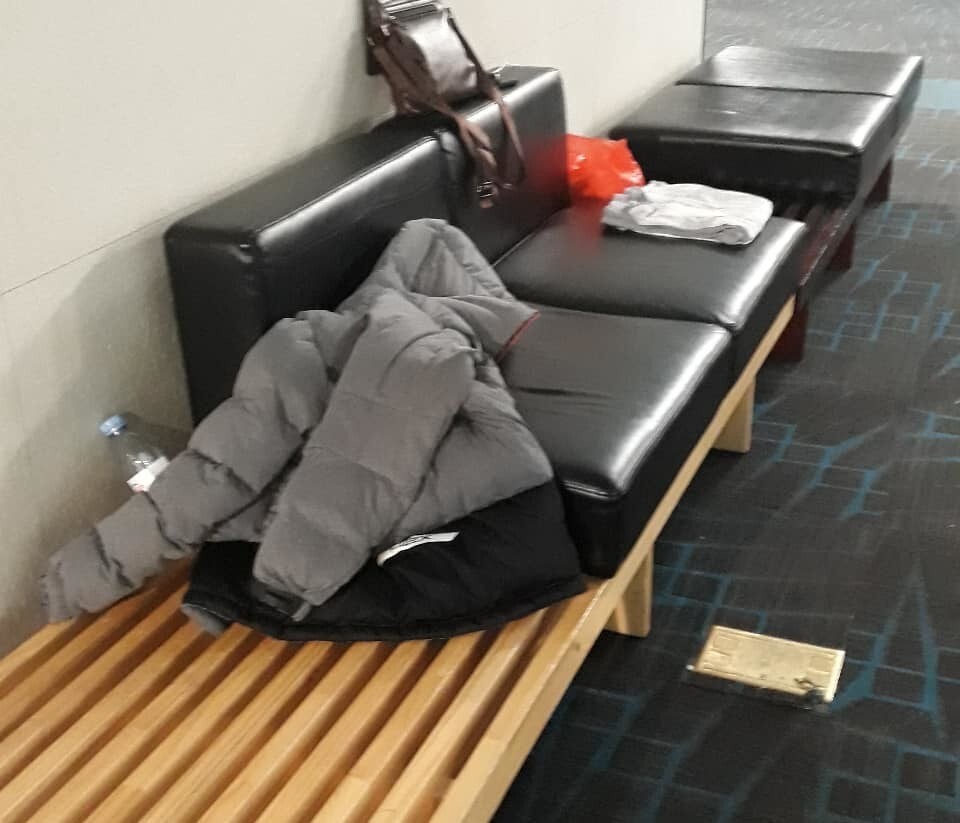hankyoreh
Links to other country sites 다른 나라 사이트 링크
[Reportage] Vietnamese migrant worker banned from entering country after going on vacation

Each time 36-year-old Nguyen (pseudonym), a migrant worker from Vietnam, heard about the COVID-19 outbreak in South Korea, he was seized by fear. His workplace looked particularly vulnerable to transmission, with 50 or so employees working cheek by jowl. Nguyen’s lack of fluency in Korean made him even more uneasy. Family members back in Vietnam were anxious about how close Nguyen’s residence in Busan was to Daegu and North Gyeongsang Province, the epicenter of South Korea’s outbreak. They urged him to come back home in every phone call.
On Feb. 23, Nguyen asked his manager for a vacation, explaining that he wanted to return home until the COVID-19 crisis abated. His manager told him to get ready to return home and sent him home early the next day. But when Nguyen returned to Korea on Apr. 17, after six weeks with his family, and tried to pass through immigration, he received some stupefying news. When his vacation began on Feb. 25, his employment contract had already been terminated, and he was now banned from entering the country.
Under Nguyen’s work permit (the E-9 nonprofessional employment visa), he was supposed to apply for a new workplace within a month of his contract being terminated; otherwise, he was subject to deportation. But Nguyen couldn’t go home because he has a family to support in Vietnam, leaving him trapped in the duty-free section of Incheon Airport for the past three weeks.
On Apr. 22, Nguyen contacted the Busan labor board to apply for relief for his unjustified termination. But since he’s been stuck at the airport, he hasn’t been able to gather evidence or submit documents himself. When Nguyen asked his local employment center to issue a copy of his contract (which he doesn’t currently have on hand), he was told that the contract could only be issued if he shows up in person. He also tried to arrange an appointment at Korea’s immigration office, but he can’t visit the office as long as he’s blocked from entering the country.
Another issue is that Nguyen can’t take part in the investigation directly or give testimony. “Nguyen’s manager claims he never gave Nguyen permission to go on vacation, and Nguyen is having trouble [disproving that] because he doesn’t have a recording or any other evidence. Since Nguyen is at the airport, an in-person interview is out of the question,” said Won Ok-geum, director of an immigrant advocacy center called Donghaeng (meaning “going together”) who is providing him with help.
“I’m having a hard time buying all my meals at the airport and not being able to shower. The most frustrating thing is I can’t talk about the injustice of this directly,” Nguyen said. On May 5, Nguyen and Won finally asked the Ministry of Justice to allow Nguyen to enter the country at least while the investigation runs its course.
“Common sense should tell you that Nguyen wouldn’t have gone home if it meant being deported on his return. Even granting that he’s banned from entering the country because he missed the deadline for applying for a change of workplace, he ought to be allowed back in for the investigation,” said Lee Jin-hye, an attorney with a center for migrant workers called Chingu (meaning “friend”).
By Park Yoon-kyung, staff reporter
Please direct comments or questions to [english@hani.co.kr]

Editorial・opinion
![[Editorial] Intensifying US-China rivalry means Seoul must address uncertainty with Beijing sooner than later [Editorial] Intensifying US-China rivalry means Seoul must address uncertainty with Beijing sooner than later](https://flexible.img.hani.co.kr/flexible/normal/500/300/imgdb/original/2024/0517/8117159322045222.jpg) [Editorial] Intensifying US-China rivalry means Seoul must address uncertainty with Beijing sooner than later
[Editorial] Intensifying US-China rivalry means Seoul must address uncertainty with Beijing sooner than later![[Column] When ‘fairness’ means hate and violence [Column] When ‘fairness’ means hate and violence](https://flexible.img.hani.co.kr/flexible/normal/500/300/imgdb/original/2024/0516/7417158465908824.jpg) [Column] When ‘fairness’ means hate and violence
[Column] When ‘fairness’ means hate and violence- [Editorial] Yoon must stop abusing authority to shield himself from investigation
- [Column] US troop withdrawal from Korea could be the Acheson Line all over
- [Column] How to win back readers who’ve turned to YouTube for news
- [Column] Welcome to the president’s pity party
- [Editorial] Korea must respond firmly to Japan’s attempt to usurp Line
- [Editorial] Transfers of prosecutors investigating Korea’s first lady send chilling message
- [Column] Will Seoul’s ties with Moscow really recover on their own?
- [Column] Samsung’s ‘lost decade’ and Lee Jae-yong’s mismatched chopsticks
Most viewed articles
- 1[Editorial] Transfers of prosecutors investigating Korea’s first lady send chilling message
- 2[Column] US troop withdrawal from Korea could be the Acheson Line all over
- 3[Column] When ‘fairness’ means hate and violence
- 4[Editorial] Intensifying US-China rivalry means Seoul must address uncertainty with Beijing sooner t
- 5China calls US tariffs ‘madness,’ warns of full-on trade conflict
- 6‘Shot, stabbed, piled on a truck’: Mystery of missing dead at Gwangju Prison
- 7[Exclusive] Unearthed memo suggests Gwangju Uprising missing may have been cremated
- 8Xi, Putin ‘oppose acts of military intimidation’ against N. Korea by US in joint statement
- 9China, Russia put foot down on US moves in Asia, ratchet up solidarity with N. Korea
- 10Putin’s trip to China comes amid 63% increase in bilateral trade under US-led sanctions